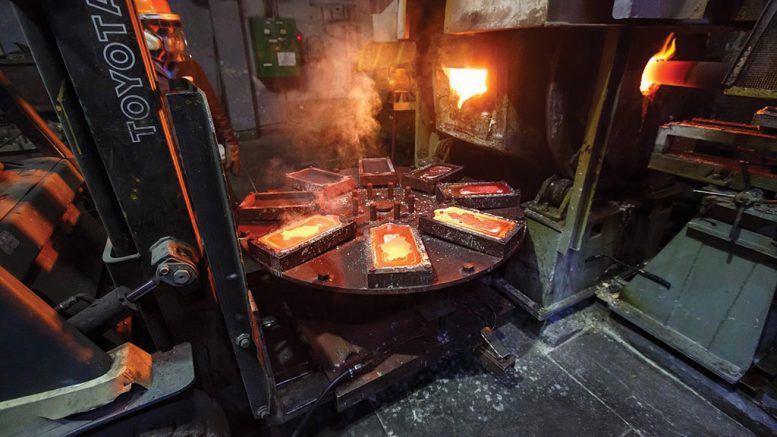Sanctioned Russian nickel could slow global EV adoption, report

According to GlobalData’s Mining Commodity Analyzer, Russia was the third-largest nickel producer in 2021, producing over 200,000 tonnes. As nickel is used in the production of EV batteries, any sanctions placed on Russian nickel will cause EV manufacturing prices to increase further, threatening adoption and decarbonization.
“Geopolitical issues such as the Russia-Ukraine situation disturb the fine balance of battery metal supply chains. A skyrocketing nickel price would have major repercussions on countries’ climate ambitions worldwide and will ultimately hamper the adoption of EVs,” said the group’s thematic research team analyst, Daniel Clarke, in a press statement.
“Now is a critical time for EV adoption, as advanced economies aim to accelerate decarbonization. However, the extra costs will be felt somewhere, either hitting automakers’ profits or being passed on to customers.”
However, the sanctions would not be a disadvantage to everyone.
“Russia has reportedly been looking to reduce the impact of sanctions by turning to Asia for trade. EV and battery companies in China may well step in and buy the commodity at lower prices. China already has a strong position in the battery metal supply chain, and buying Russian nickel on the cheap due to sanctions would further strengthen its globally competitive position,” said Clarke.
Meanwhile, the West’s efforts to offset the Russian supply losses could stifle EV penetration rates. It could also impede the industry’s efforts towards the reshoring and ESG-proofing of battery supply chains, two critical challenges that automakers have been grappling with for the last few years.
“It is possible that another nickel-producing nation such as Indonesia or the Philippines could step up and supply western automakers, but this would lead to two negative consequences for companies downstream,” cautions fellow analyst Dr Lil Read.
“Firstly, Western automakers would see an increase in emissions across their supply chains – as these two producing countries are geographically further afield and frequently engage in environmentally unfriendly practices. Secondly, this would lead to an increase in the reliance on China for companies downstream, as Chinese companies play a key role in the main nickel mines in these countries,” said the analyst.
Considering other battery types that may have the potential to increase in popularity because of the situation, Read expects battery innovation to find a way, albeit not overnight.
“We expect that lithium-ion phosphate batteries, which do not contain nickel or cobalt, will increase popularity and adoption over the medium term if the conflict continues,” said Read.
GlobalData has previously warned that lithium has its limitations.
With annual EV production set to skyrocket to 12.76 million cars by 2026, with over half coming from China, weaknesses in lithium-ion supply chains will also conspire with emerging geopolitical issues to slow electric vehicle adoption and demonstrate China’s dominance of the EV market.




